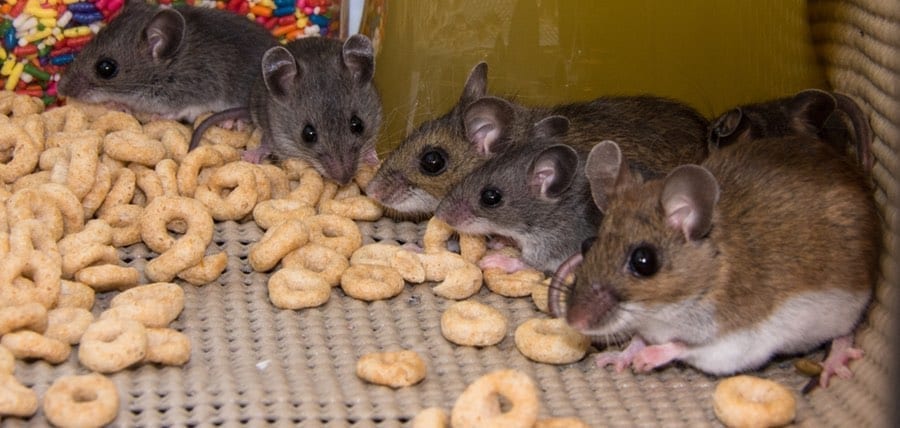Is It A Deer Mouse Or A Field Mouse In My House?
Mice like to live in warm cozy areas. This means you may find one (or several) in your home if you live in a rural or suburban area. Mice are likely to show up on your property during the fall and winter seasons. The weather is colder during this time of year, so mice are looking for shelter. Do you have a field mouse in the house? Have you seen what you think are deer mice droppings, but aren’t sure? Here are some of the ways you can tell if you and your family have some unwanted home visitors.
Field Mouse Description
Field mouse is the term that describes a number of mice that reside in the United States. These mice do reside in fields but also find their way into rural homes, plains, and forests. Field mice can also be a variety of colors, such as white, brown, and black. Field mice get into your house because they are very skilled when it comes to gnawing, jumping, climbing, and swimming. This means the rodents can get into hidden nooks of your home. You may not even know the mice are there for some time.
Field mice can be dangerous because they have the ability to contaminate food and beverages with their urine and feces. The rodents commonly gnaw into food containers. Once it’s clear that a mouse has gotten into your food, it’s best to throw it away immediately. Even if you suspect that mice have gnawed into food containers, dispose of the items. Mice can carry tick-borne illnesses and infections. Field mice can also cause house fires since they gnaw on wires. The rodents have the ability to gnaw through insulation as well. If you see small bite marks on the wood, wiring or insulation, it’s time to call an exterminator.
Deer Mouse Description
Deer mice don’t usually live in homes. However, the rodents will find their way into your house during cold weather. The deer mouse has a sharp nose and pointy ears and is nocturnal. Deer mice have very sharp teeth and are omnivorous. The rodents use their teeth to tear through the bodies of beetles. During the summer, deer mice feed on snails and earthworms. The mice also eat various forms of fungi and fruit. These mice store their food in the trunks of trees and in bird’s nests. Deer mice like to live in tree stumps. In the winter, the mice live under the snow. The rodents have nests underground to keep them warm. The deer mouse has a number of predators, including foxes, hawks, and snakes.
During the breeding season, up to 15 mice may live in one nest. The male deer mouse often cares for the older offspring while the female is giving birth. The mice use vocal signals to communicate and may also give off chemicals to warn other mice. Deer mice also use staring and mutual grooming to relay messages to fellow mice.
Deer Mouse vs. House Mouse Droppings
One of the best ways to know whether house mice or deer mice have been in your home is to look for droppings. House mouse droppings look similar to a grain of rice. The droppings can be gray or black, depending on the rodent’s age and diet. The droppings don’t have a smell. However, house mouse urine has a strong ammonia-like odor. Deer mouse droppings look similar but have pointed ends. Deer mice carry the hantavirus. So, if you see these droppings in your pantry or cupboards, throw away all nearby food.
Is it time to make sure your food and beverages are not contaminated with urine and feces? Are you ready to hire an exterminator to get rid of these mice, NJ Pest can get the job done quickly and efficiently. Contact the expert team at NJ Pest to book your appointment today.

